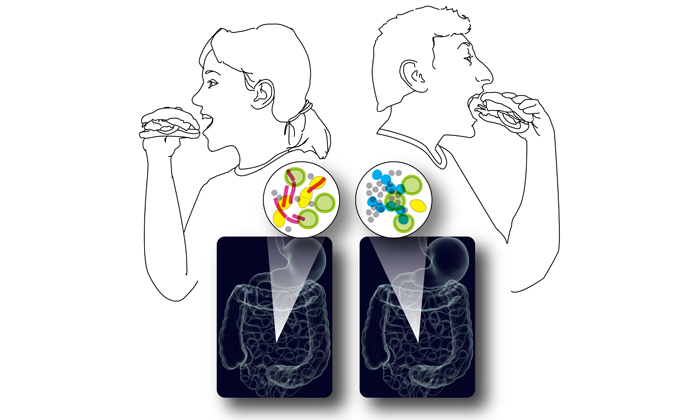Compared with Apes, People’s Gut Bacteria Lack Diversity, Study Finds
 The microbes living in people’s guts are much less diverse than those in humans' closest relatives, the African apes, an apparently long evolutionary trend that appears to be speeding up in more modern societies, with possible implications for human health, according to a new study.
The microbes living in people’s guts are much less diverse than those in humans' closest relatives, the African apes, an apparently long evolutionary trend that appears to be speeding up in more modern societies, with possible implications for human health, according to a new study.














 The microbes living in the guts of males and females react differently to diet, even when the diets are identical, according to a study by scientists from The University of Texas at Austin and six other institutions published this week in the journal
The microbes living in the guts of males and females react differently to diet, even when the diets are identical, according to a study by scientists from The University of Texas at Austin and six other institutions published this week in the journal 










